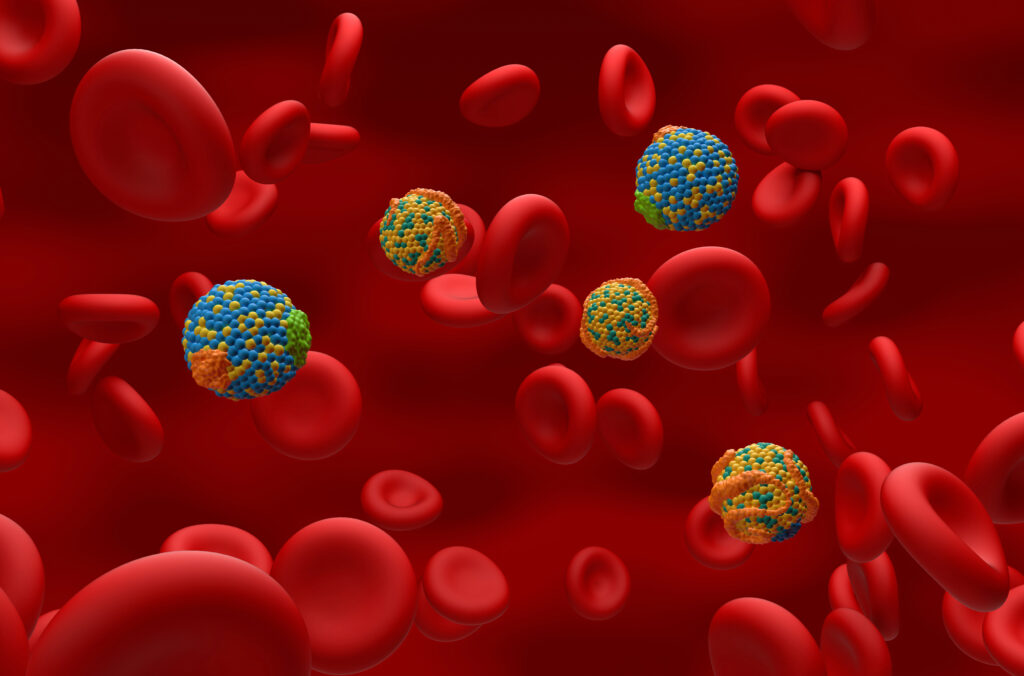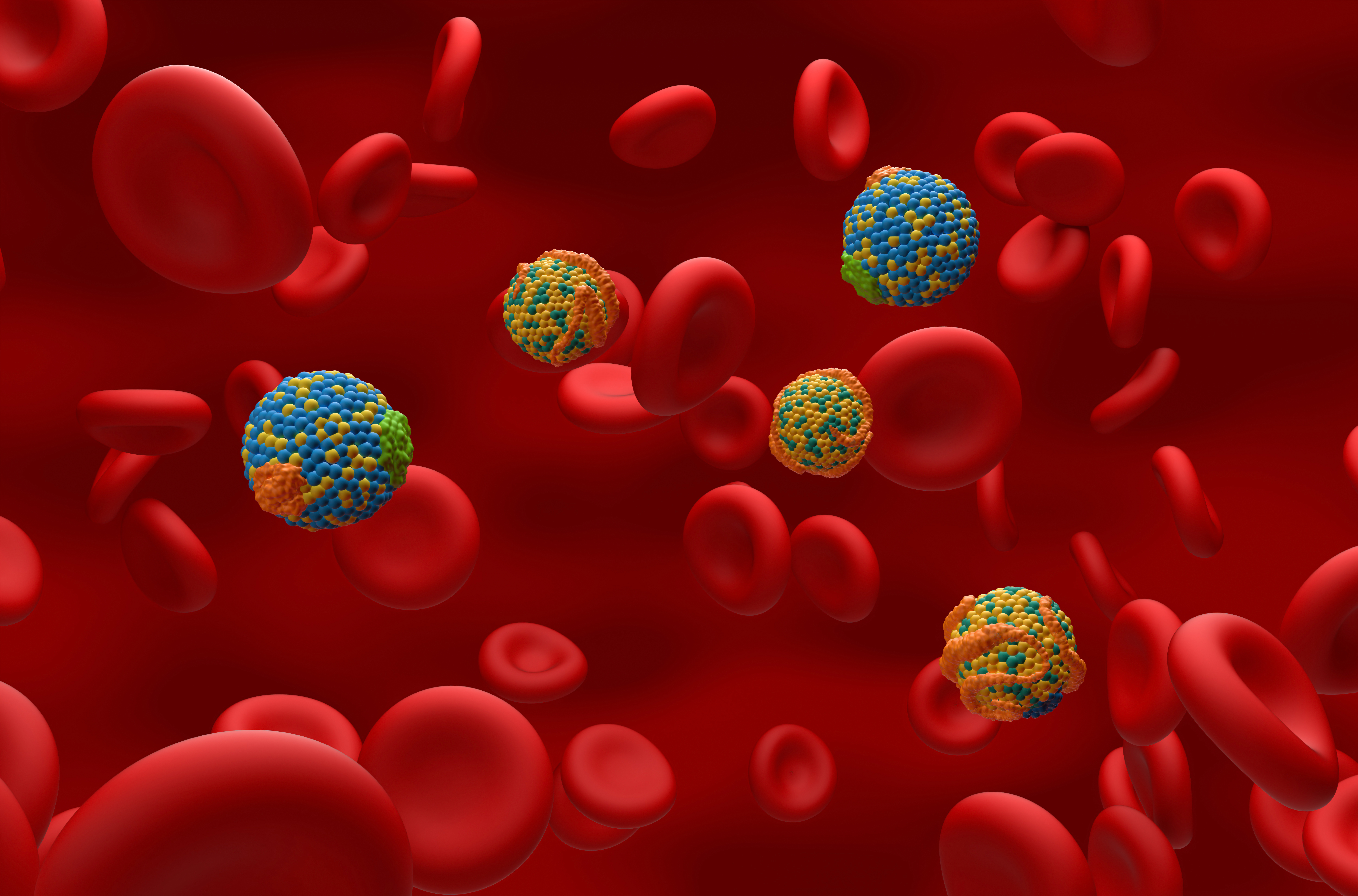You’ve heard of cholesterol and triglycerides as blood markers for heart health, but what is Lipoprotein A? Lp (a) is a low-density lipoprotein (LDL)-like lipoprotein that has two main protein components: apoB100 and apolipoprotein(a). But it’s not just another form of LDL — it’s a genetic marker that puts you at a higher risk of heart disease, stroke, heart attack, and other heart-related problems.
Let’s cover how Lp (a) is tested, what results can mean, and how to take them into account when reducing your heart disease risk profile.
Lipoprotein A Test
A Lipoprotein A test will measure the levels of Lp (a) that are present in your blood. It’s not a routinely performed test at most doctor’s offices, as a specific assay is needed to measure it. You will either have to request it or your doctor will recommend you have it done based on your other heart disease risk factors.
For example, a Lipoprotein A test may be appropriate if:
- You have a direct family history of blood vessel or heart disease, particularly before age 55 for brothers and fathers or before age 65 for mothers and sisters
- Have inherited high cholesterol
- Have high LDL cholesterol despite using medication to manage it
- Have a history of multiple heart attacks or surgeries to open your arteries to improve blood flow
To prepare for an Lp (a) test, you will usually need to fast for 9-12 hours beforehand. This is because anything besides water can interfere with the results. Other things that could potentially alter your results include alcohol, aspirin, oral estrogen hormones, or niacin (vitamin B3) supplements, so be sure to tell your healthcare provider if you’ve used any of these.
When you have the test done, it’s just like any other blood test. Blood will be drawn from a vein in your arm and collected. The test only takes a few minutes.

Interpreting Your Results
Once your results are back, you may have questions about how to interpret your Lipoprotein A levels. Lp (a) is pro-inflammatory and pro-atherogenic. So if your Lipoprotein A levels are high, this indicates an increased risk of having a stroke, heart attack, heart failure, and other heart-related conditions.
Regardless of your cholesterol levels or other lab markers, it’s important to be proactive about reducing your risk of heart disease or having a heart attack. This is because Lp (a) is an independent risk factor.
Normal Lp (a) is considered to be under 30 mg/dL (75 nmol/L), and it’s not uncommon for people to have high Lp (a).
Causes of High Lp (a)
If you find out that you have high Lp (a), your first question will probably be why that could be. According to a 2020 paper in the New England Journal of Medicine, Lp (a) levels are largely genetically determined. And of course, when they are elevated, this increases your risk for cardiovascular disease.
Risk Factors
Wondering what your likelihood of having higher Lp (a) might be? Here are some related risk factors to take into account:
- You have female family members who had a heart attack or stroke before age 65
- You have male family members who had a heart attack or stroke before age 55
- You have peripheral artery disease, aortic stenosis, or a family history of high cholesterol
- You’ve had a heart attack, stroke, or been diagnosed with coronary artery disease without having other known risk factors for heart disease
How to Reduce Lipoprotein A Levels Naturally: Is it Possible?
While it’s not a routinely checked lab, Lp (a) can tell you a lot about your cardiovascular disease risk. So it’s helpful to be aware if yours is higher than normal, especially if you don’t have other related risk factors.
Unfortunately, Lp (a) is not something that can be reduced on its own — it’s more effective to target your overall heart health risk profile.
For the most part, there are no approved standard pharmacologic therapies to lower high Lipoprotein A levels and no standard medications that are used to specifically target it.
There are some medications that may be used to help in the early stages of development.
For example, estrogen and niacin may help lower Lp (a) but don’t lower the risk of adverse heart health events or related death. Medications called PCSK9 inhibitors may offer some potential, but more research is needed before they can be recommended as targeted therapy.
Furthermore, there are a number of ongoing clinical drug trials that have seen success thus far. Some of these include Pelacarsen (TQJ230), Olpasiran (AMG890, and SLN360, which interrupt Lp(a) production. While these are still probably a few years out from being available, their progress is promising.
There is also a nonsurgical therapy called lipoprotein apheresis, which is intended to remove Lp (a) and high LDL cholesterol from your blood. However, this is generally saved for very high-risk patients who also have progressive atherosclerotic cardiovascular disease.
Instead, having high Lp (a) should be taken as an indication that more proactive risk management needs to take place including nutrition and lifestyle changes. By doing so, you can help optimize your labs and address underlying root causes that are increasing your risk, and potentially silence your Lipoprotein A.
Lifestyle Approaches
When you have high Lp (a), you are considered at high risk for cardiovascular disease. There are no ways to reduce Lipoprotein A naturally, so you’ll need more aggressive lifestyle interventions to reduce your risk profile.
For example, while aiming for an LDL of less than 100 mg/dL that may be sufficient for the general population, someone with high Lp (a) should aim for less than 70 mg/dL. Blood pressure should be maintained at or below 110/70 mg/Hg versus the typical 120/80 mm/Hg. And your HOMA-IR (Homeostatic Model Assessment for Insulin Resistance) should be less than 1.
What can you do to achieve these?
Optimize Your Nutrition
Nutrition is a powerful tool for heart health. It can help improve your blood vessel health and lower your cardiovascular risk profile. Start by identifying areas where improvements can be made.
Boost your intake of omega-3 fats (from foods like fish and seafood, walnuts, and ground flax seeds) and reduce your intake of omega-6 fats that come from ultra-processed foods and oils. Increase your fiber, antioxidant, and polyphenol consumption by eating a wide variety of plant foods, including colorful fruits and vegetables, nuts, seeds, whole grains, and legumes.
Reduce your saturated and trans fat intake that may come from animal foods like red and processed meat as well as fast food products. Additionally, eating a diet high in added sugar and sodium can promote inflammation and vascular problems, so check your food labels and reduce the amount you’re adding when cooking at home.
Exercise Regularly
It’s no secret that staying active is good for your heart health. But studies show that resistance training, in particular, is helpful for reducing LDL cholesterol levels associated with heart disease risk.
If you don’t currently exercise, consider what activities you enjoy doing or would like to try. This could include a combination of walking, using a row machine, swimming, playing a sport, dancing, or joining a group fitness class. Aim for at least 30 minutes a day, which may require starting slow and working up to an increase.
Stop Smoking
Smoking can increase LDL and reduce HDL levels because it contains a compound called acrolein. It can damage your blood vessels and arteries and increase your risk for blood clots.
Get personalized support
Work with a cardiovascular dietitian who can provide you with a personalized plan to evaluate and optimize your heart health risk profile to help potentially silence the Lipoprotein(a) and reduce your risk of cardiovascular events.
Have you gotten your Lipoprotein A levels back and need to take action? I offer 1:1 counseling as well as group coaching to optimize heart health.
References
- Lipoprotein (a) Blood Test. Medline Plus. Available: https://medlineplus.gov/lab-tests/lipoprotein-a-blood-test/
- Ferro CJ, Sarafidis P, Ortiz A. Lipoprotein(a) Reduction in Persons with Cardiovascular Disease. N Engl J Med. 2020;382(21):e65. doi:10.1056/NEJMc2004861
- Lipoprotein (a). Centers for Disease Control. Reviewed 27 June 2022. Available: https://www.cdc.gov/genomics/disease/lipoprotein_a.htm
- Liu T, Yoon WS, Lee SR. Recent Updates of Lipoprotein(a) and Cardiovascular Disease. Chonnam Med J. 2021;57(1):36-43. doi:10.4068/cmj.2021.57.1.36
- Korneva VA, Kuznetsova TY, Julius U. Modern Approaches to Lower Lipoprotein(a) Concentrations and Consequences for Cardiovascular Diseases. Biomedicines. 2021;9(9):1271. Published 2021 Sep 20. doi:10.3390/biomedicines9091271
- Pokrovsky SN, Afanasieva OI, Ezhov MV. Therapeutic Apheresis for Management of Lp(a) Hyperlipoproteinemia. Curr Atheroscler Rep. 2020;22(11):68. Published 2020 Sep 18. doi:10.1007/s11883-020-00886-0
- Feingold KR. The Effect of Diet on Cardiovascular Disease and Lipid and Lipoprotein Levels. [Updated 2021 Apr 16]. In: Feingold KR, Anawalt B, Blackman MR, et al., editors. Endotext [Internet]. South Dartmouth (MA): MDText.com, Inc.; 2000-. Available from: https://www.ncbi.nlm.nih.gov/books/NBK570127/
- Fisher S, Smart NA, Pearson MJ. Resistance training in heart failure patients: a systematic review and meta-analysis. Heart Fail Rev. 2022;27(5):1665-1682. doi:10.1007/s10741-021-10169-8
- Smoking and Heart Disease and Stroke. Centers for Disease Control. Reviewed 15 March 2023. Available: https://www.cdc.gov/tobacco/campaign/tips/diseases/heart-disease-stroke.html
- Chadwick AC, Holme RL, Chen Y, et al. Acrolein impairs the cholesterol transport functions of high density lipoproteins. PLoS One. 2015;10(4):e0123138. Published 2015 Apr 7. doi:10.1371/journal.pone.0123138
- Wilkens TL, Tranæs K, Eriksen JN, Dragsted LO. Moderate alcohol consumption and lipoprotein subfractions: a systematic review of intervention and observational studies. Nutr Rev. 2022;80(5):1311-1339. doi:10.1093/nutrit/nuab102
